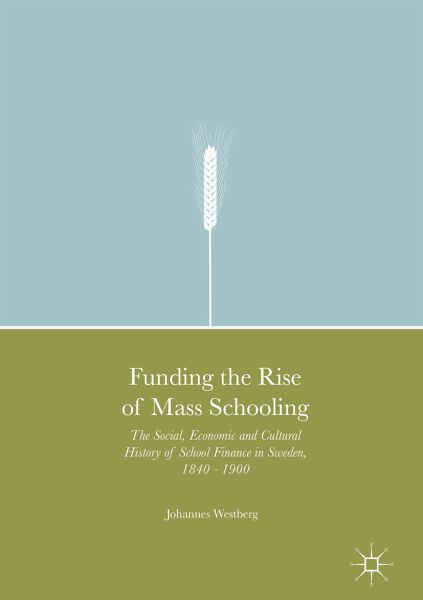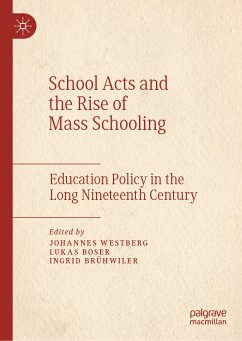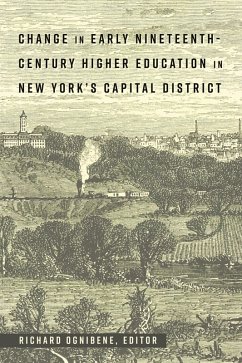
Funding the Rise of Mass Schooling (eBook, PDF)
The Social, Economic and Cultural History of School Finance in Sweden, 1840 - 1900
Versandkostenfrei!
Sofort per Download lieferbar
40,95 €
inkl. MwSt.
Weitere Ausgaben:

PAYBACK Punkte
20 °P sammeln!
This book presents expert analysis on how the remarkable rise of mass schooling was funded during the nineteenth century. Based on rich source materials from rural Swedish school districts, and drawing up evidence from schooling in countries including France, Germany, England and the U.S., Westberg examines the moral considerations that guided economic practices and sheds new light on how the advent of schooling did not only rest upon monies, but also on grains, firewood and cow fodder. Exploring school districts' motives and economic culture, this book shows how schooling was neither primaril...
This book presents expert analysis on how the remarkable rise of mass schooling was funded during the nineteenth century. Based on rich source materials from rural Swedish school districts, and drawing up evidence from schooling in countries including France, Germany, England and the U.S., Westberg examines the moral considerations that guided economic practices and sheds new light on how the advent of schooling did not only rest upon monies, but also on grains, firewood and cow fodder. Exploring school districts' motives and economic culture, this book shows how schooling was neither primarily guided by frugal impulses nor motivated by a fear of the growing working classes. Instead, school spending served multiple purposes in school districts that pursued a fair and reasonable economic practice.
In addition to being a highly-detailed case study of Sweden 1840 - 1900 this book also entails a broadening of the theoretical horizon of history of education into social,agrarian and economic history in a wider context. With a focus on different systems of school finance, this work reveals a key change over time: from a largely in-kind system supporting schools in an early phase, followed by an increasingly monetarized, depersonalized and homogenized system of school finance. Boasting an interdisciplinary appeal, this will be a welcome contribution of interest to scholars in the fields of education history, sociology, and economics.
Dieser Download kann aus rechtlichen Gründen nur mit Rechnungsadresse in A, B, BG, CY, CZ, D, DK, EW, E, FIN, F, GR, HR, H, IRL, I, LT, L, LR, M, NL, PL, P, R, S, SLO, SK ausgeliefert werden.
Alle Preise in Euro und inkl. der gesetzl. MwSt. | Innerhalb Deutschlands liefern wir preisgebundene Bücher versandkostenfrei. Weitere Informationen: bitte hier klicken
Support
Bitte wähle dein Anliegen aus:
Rechnungen
Bestellstatus
Retourenschein
Storno












